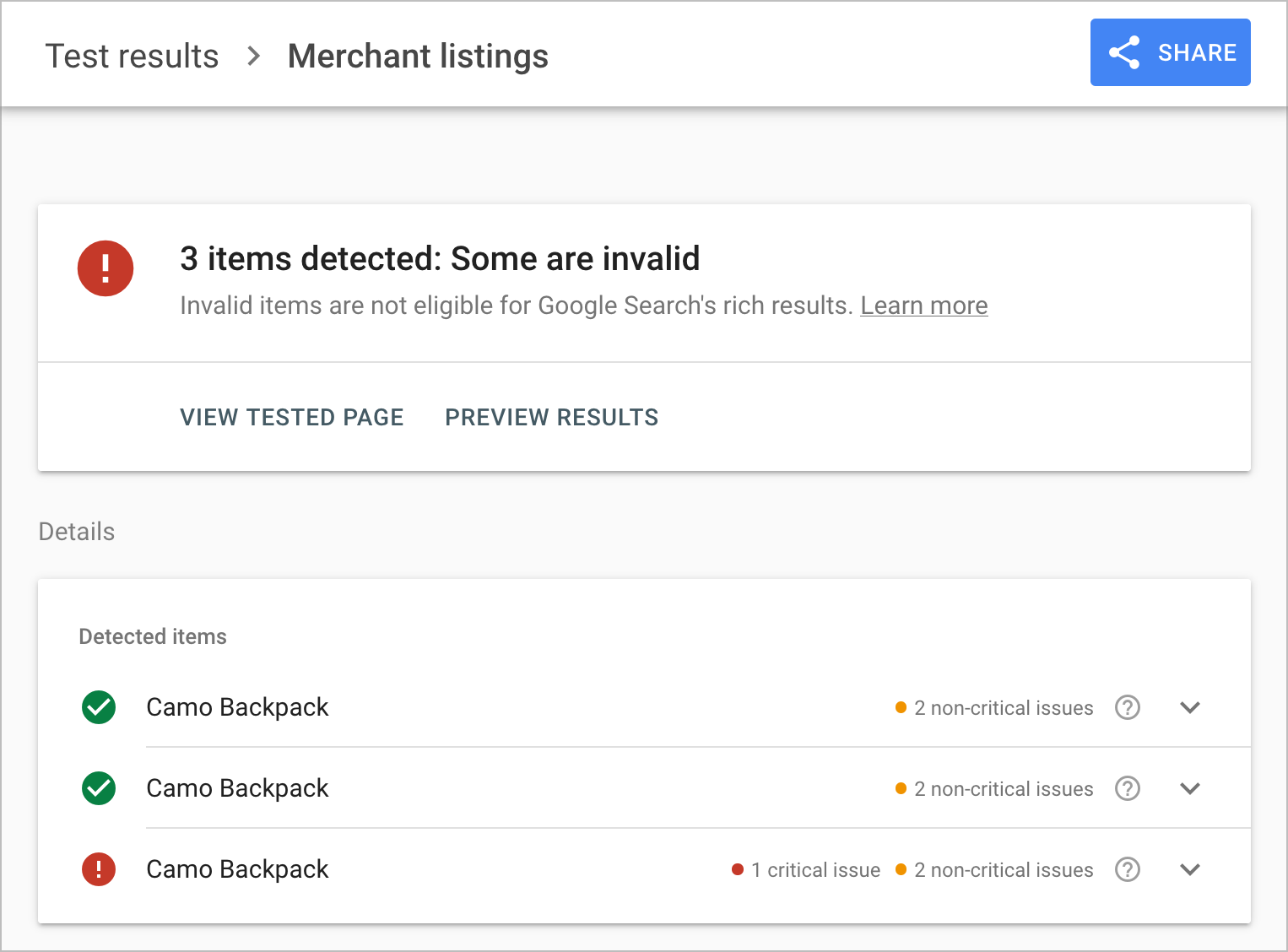Duplicate content vs duplicate sets of structured data
Many Shopify SEO apps will remove structured data from your theme or other apps found on the site. They'll say it causes duplicate content, which is a lie.
They say this to cause fear around structured data because it's technical and they are banking on the fact that you don't understand how it works.
Duplicate content is not the same thing as duplicate sets of structured data.
What is duplicate content?
Duplicate content means you have the same content on different URLs.
A common Shopify example is with collection-aware product URLs.
- collection-aware URL: /collections/clearance/products/example-1234
- product-only URL: /products/example-1234
Those product pages would have identical content, but two different URLs. Perhaps one of the most frustrating things about Shopify and a clear example of duplicate content.
When the majority of your content (let's say 80% or more) is the same on two (or more) different URLs, that is duplicate content.
Is duplicate content ok?
Duplicate content is not a violation of Google's policies. Google will not penalize you for duplicate content.
With that said, there are a few potential issues with duplicate content.
- It can be hard for you to maintain which could confuse customers.
- Search engines may waste time crawling URLs that you don't care about.
- You may compete against yourself when trying to rank a page.
- Google may not know which page to suggest and get confused.
- If a default URL (canonical) isn't assigned, Google may try to figure it out for you and may choose the wrong one.
As you can see, the issues above are not severe. You will not be kicked off Google or penalized for duplicate content.
It's common and expected to have the same content on different pages, as mentioned above. Though it should be avoided when possible.
What is duplicate structured data?
Duplicate structured data would be if you have more than one set of product data as an example.
Shopify requires themes in the Shopify Theme Store to include product structured data.
The goal of structured data is to provide explicit clues about the page so that search engines can better understand the meaning of the page.
You may add a structured data app when the theme lacks a complete set of structured data. Theme providers are only required to include product structured data. Shopify doesn't state that it must be error-free, they don't state which types of data are required, nor do they state what data must be included.

It's very common for Shopify stores to have more than one set of product data for this very reason. That one URL can have as much markup and as many times as needed for Google to understand the data.
Is duplicate structured data ok?
When SEOs complain about duplicated structured data, it's usually due to a lack of deep expertise needed with structured data.
Google doesn’t care if you have duplicate sets of the same structured data on a page. They only care that the structured data is relevant to the page content and meets their technical guidelines.
I've looked at thousands of Shopify stores structured data, most of which have more than one set of data. In my experience, Google will review at all the product data on the page and use the most complete set of data for their analysis.
Additionally, Google's documentation states:
If you have duplicate pages for the same content, we recommend placing the same structured data on all page duplicates, not just on the canonical page.
And...
A note about duplicate structured data content: Structured data is typically duplicated across many pages within a site, and for good reason. For example, you might post several Job listings for the same opening in multiple locations. These listings would have identical description values but different location values. The enriched search algorithm takes this into account, and these objects are not considered to be duplicates.
If we translate this example to ecommerce stores, let's say you have a product that comes in multiple colors. If each color is its own product instead of listing them as variants, you'd likely have the same product description across multiple URLs. The only difference might be that you state one is blue and the other is red.
If you recall, we defined duplicate content as more than one URL with the same content. This means that Google wants you to markup each page that may be considered duplicate content, with the same structured data. That's because it's impossible to know which URL Google will use to show in search results.
Do I have to do anything?
Well, I guess that depends on if your structured data is up to snuff.
Unlike duplicate content, if your structured data has errors, or you markup something that is not visible on the page, your SEO is at risk. At best, Google simply ignores the structured data. At worst, Google issues manual action, removing your site from search results.
JSON-LD for SEO provides safe, high-quality data that will help your store qualify for Rich Results. Often faster than the industry averages.
If you already have JSON-LD for SEO installed, then no, you don't have to do anything.
JSON-LD for SEO
Get more organic search traffic from Google without having to fight for better rankings by utilizing search enhancements called Rich Results.




